Psychiatric sanctuary in Emakhandeni
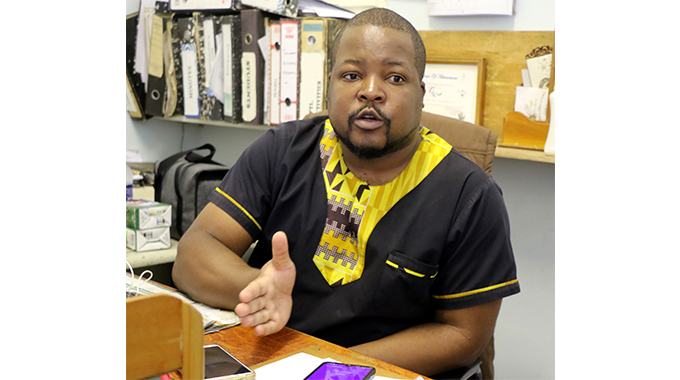
Raymond Jaravaza, Saturday Chronicle Correspondent
NESTLED in the heart of Emakhandeni suburb in Bulawayo is a huge building, which is conspicuous because of its size and design.
The structure is little known in the locality. Very few local residents understand its operations yet it is a beacon of hope for the people that call it their second home.
Conspiracy theories about the building are abound. Some call it a ghost house that was abandoned by its owners many years ago while others simply refer to it as ‘that big house where strangers are always walking in and out on a daily basis’.
But to the out-patients of Ingutsheni Central Hospital, the biggest referral mental health institution in the country, the place is known as the Emakhandeni Day Care Centre, a home away from home where they can interact with one another without being judged and also acquire life skills.
It’s a place that offers solace and a safe space to people that are likely to have been shunned by society as a result of their condition.
Mental health patients from the city’s western suburbs spend the day at Emakhandeni Day Care Centre where they interact while undergoing life skills training.
Most of the out-patients are young recovering drug addicts whose abuse of illicit substances triggered mental health problems.
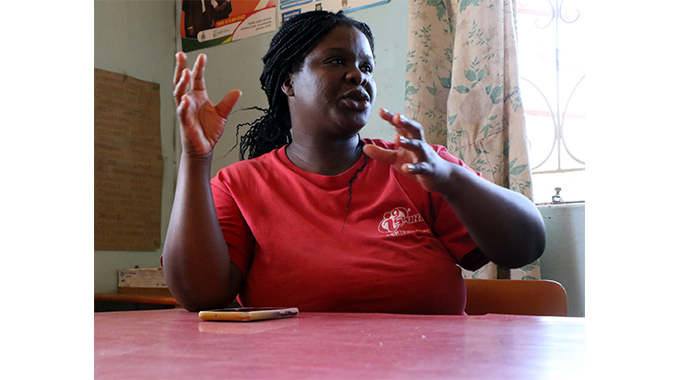
EMakhandeni Day Care Center-Tsungai Muchena
Dr Unity Chitapi, an occupational therapist at Ingutsheni Central Hospital, said the day care centre caters for mental health patients who would have been admitted at Ingutsheni Central Hospital and then later discharged but still need to be monitored as they go through their recovery process.
“Because the patients have suffered mental illnesses doesn’t mean that they should be abandoned by society hence we want to make sure that they go back to living their normal lives just like any other human being by first learning basic chores like cleaning, washing, cooking and taking care of themselves,” she said.
“So we welcome them back at the centre as they recover and teach them those basic things and gradually they start doing menial work such as gardening then upgrade to learning life skills like shoe making and carpentry among others.”
Dr Chitapi said the recovery for mental health patients is a process.
“It is important to take it one step at a time and the Emakhandeni Centre offers an environment that is conducive for a smooth recovery process. The patients need to develop a work ethic so that they don’t find themselves in the same situations that triggered the mental challenges,” she said

Ingutsheni Hospital
Society is not always kind to patients with mental health illnesses. They are ridiculed as victims of witchcraft.
Some are shunned because they are accused of committing crimes against humanity and thus deserve what they got by losing their ‘minds’.
Dr Chitapi knows the stigma weighing down mental health patients all too well. She is a strong advocate for safe spaces like the Emakhandeni Day Care Centre across the country.
“Mental health illness is not a curse. It’s people who refer to such people as ‘mad’ that fuel stigma against mental health illness patients. They are not mad, they suffer from various conditions that can be managed,” she said.
“The reception that the outpatients receive from the local community is mixed if I can put it that way. The community needs a lot of awareness to understand that mental health illness is not a curse and they should not judge patients who suffer from such conditions.”

Mental Health
Dr Chitapi said the centre will be closed soon for renovations.
It has benefited from the Constituency Development Fund that Members of Parliament (MPs) are allocated by the Government to develop their constituencies. A perimeter fence was erected around the facility.
Dr Chitapi said more still needs to be done to improve the centre.
“We have challenges with water as Emakhandeni is also affected by the constant water shedding which is being implemented by the Bulawayo City Council. We need a borehole so that we can engage in farming projects” she said.
“We have a partner who will help us renovate the place so we will be closing it down any time soon.”
A life skills coach at the centre, Tsungai Muchena said the out patients feel at home and are eager to participate in the various programmes.
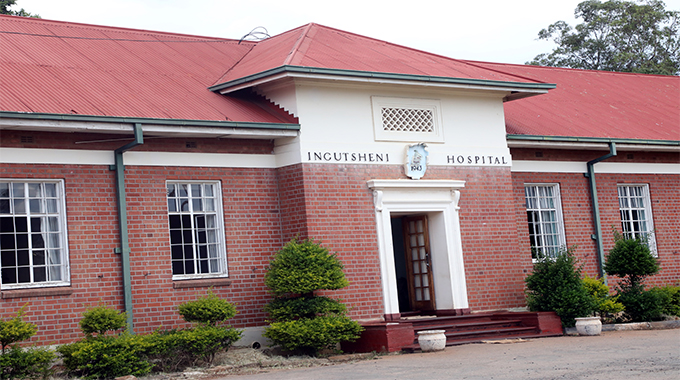
Ingutsheni Hospital
“It’s important that they spend their day doing something productive. Being idle might result in the patients relapsing and therefore the centre is very helpful in giving them back their lives,” he said.
At Ingutsheni Central Hospital, cases of drug abuse and subsequent mental health complications are an issue of concern.
Walking into the centre, one is quickly hit by the stark realisation that the place is not for the faint-hearted.
Bold words “Ingutsheni Hospital” inscribed at the entrance of the institution’s administration block welcome the visitors.
A further stroll into the institution takes a visitor to the Khumalo Ward. A white-painted door, broad and long, stands between those brought into Ingutsheni male admission ward and the purple clad patients that populate it.
High-pitched voices tell tales of the occupants of Khumalo Ward, one of the 14 wards at Ingutsheni where patients of varying degrees of mental illness are accommodated.
For an institution that has an average of 650 admitted patients and over 2 400 out-patients per month, rising cases of drug abuse among the youth, which can sometimes lead to mental illness, are a cause for concern.
Ingutsheni Central Hospital clinical director, Dr Wellington Ranga said most of the youths suffering from mental health illness have abused drugs and there is therefore a need for a holistic approach in order to tackle the scourge.

He said the issue of drug abuse is a complex problem that needs all stakeholders to work together to address it.
“My view is that if one were to go to most boys at high schools they would find out that a huge number smokes marijuana but what is society doing about that? It’s only when one of those boys become psychotic and are admitted at Ingutsheni Hospital that parents start asking themselves why it happened,” said Dr Ranga.
He said what society has to appreciate is that there is a need for communities to come together to fight drug abuse especially among the youths in order to reduce the number of patients at Ingutsheni Hospital and its Emakhandeni Day Care Centre.
@RaymondJaravaza

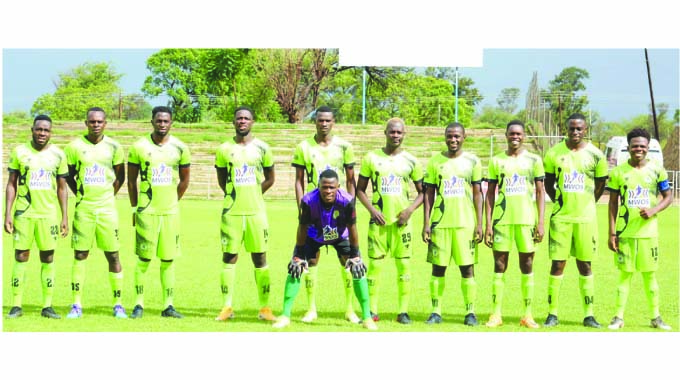
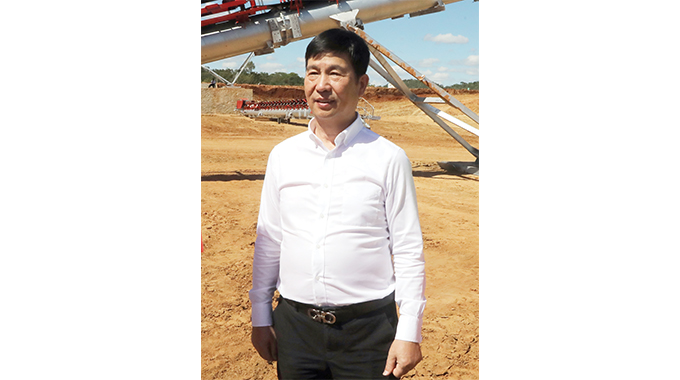


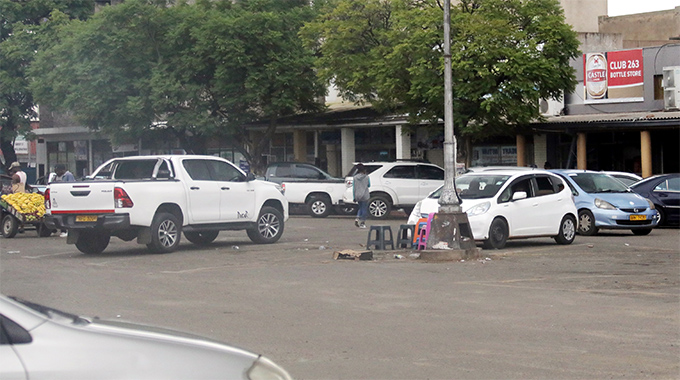






Comments